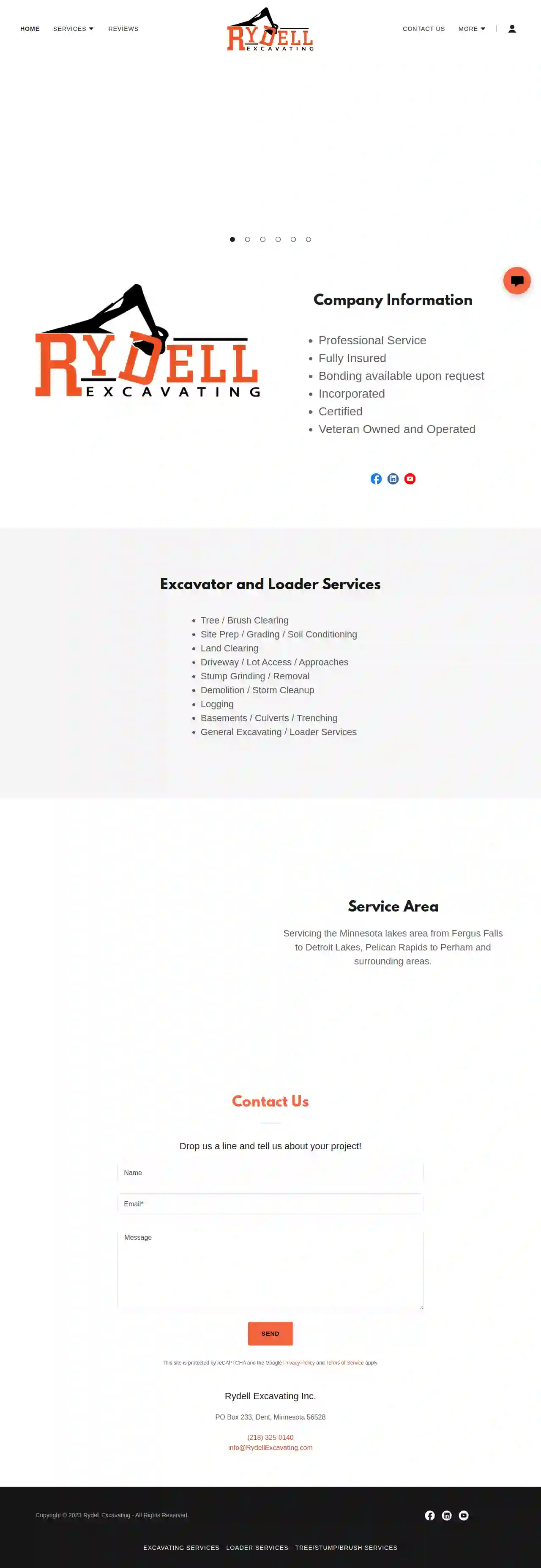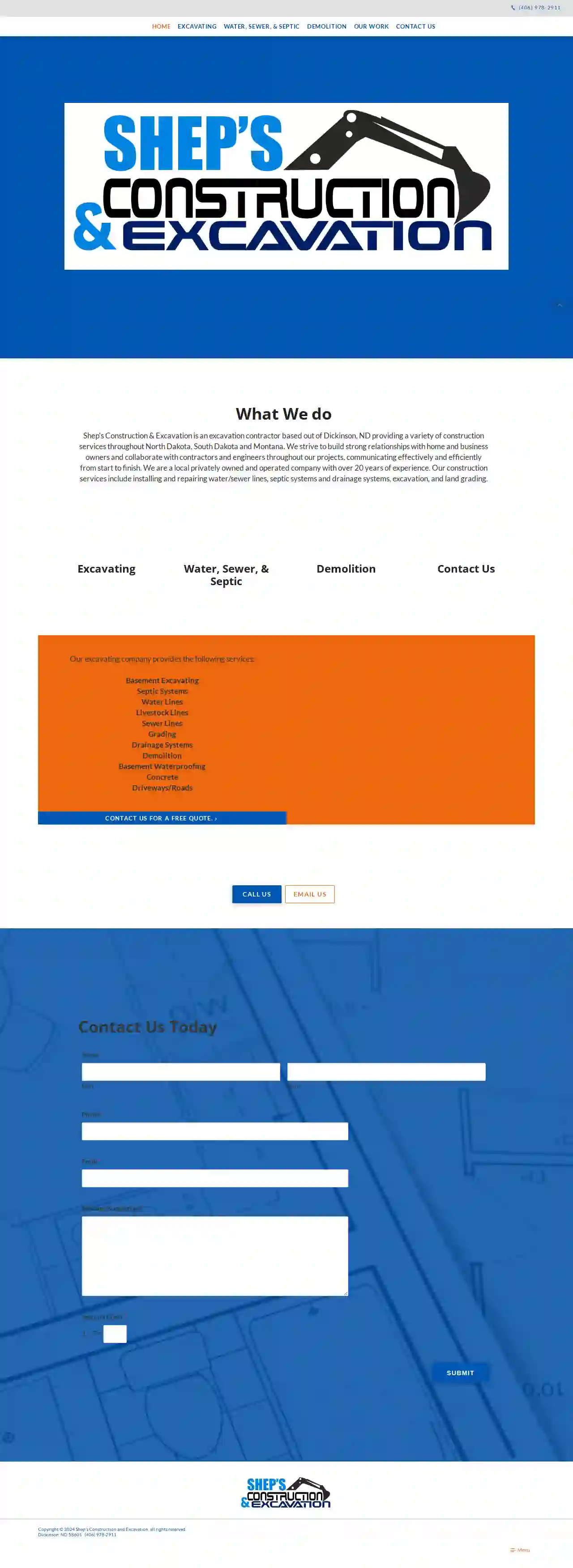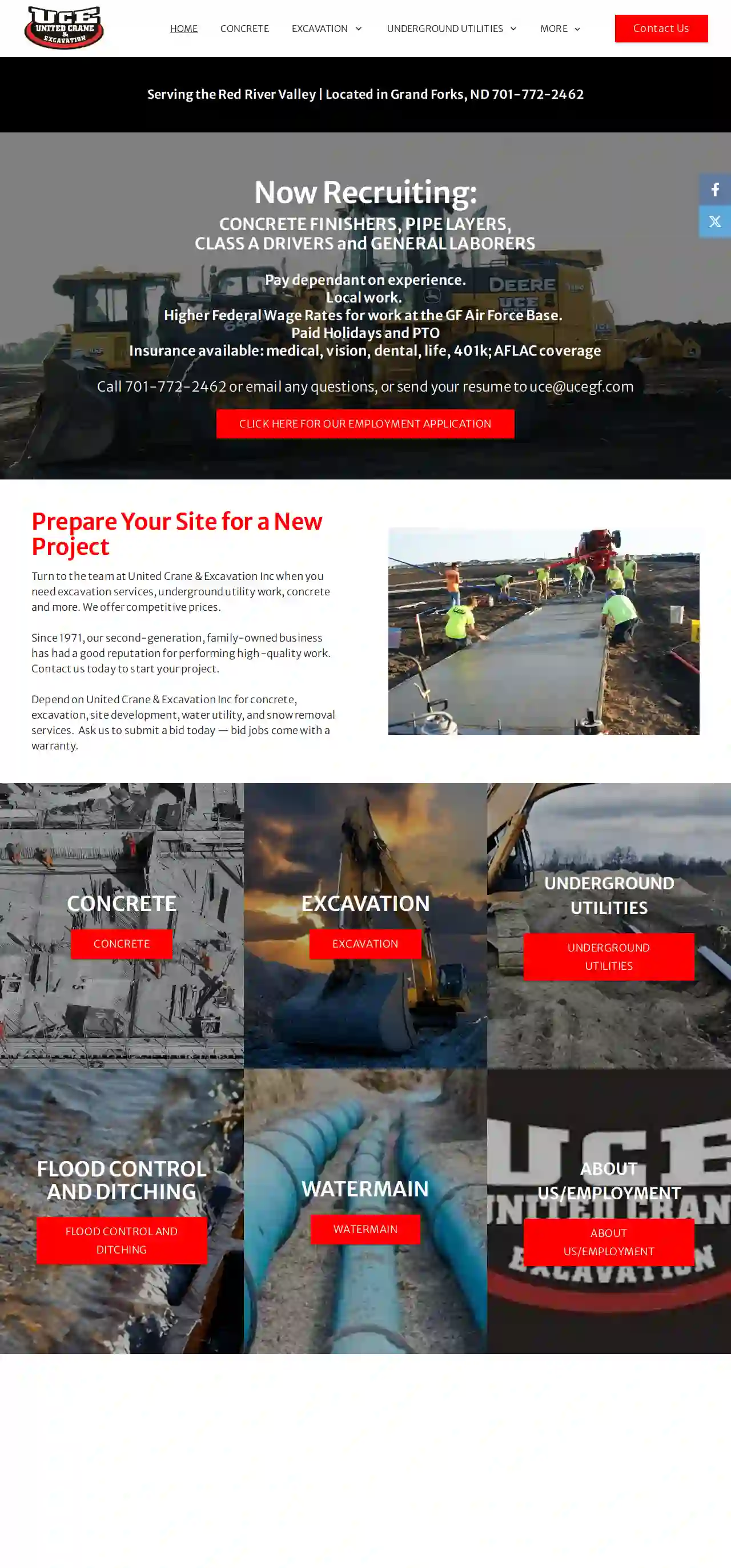Demolition Contractors Fargo
Find Demolition Companies in Fargo
Get up to 3 Demolition Experts quotes for your project today! Compare profiles, reviews, accreditations, portfolio, etc... and choose the best service.

Rydell Excavating
516 reviewsPO Box 233, Dent, 56528, USCompany Information Rydell Excavating is a professional excavating company serving the Minnesota lakes area. We are fully insured and bonding is available upon request. We are a veteran-owned and operated business, committed to providing high-quality services to our clients. Excavator and Loader Services We offer a wide range of excavating and loader services, including: Tree / Brush Clearing Site Prep / Grading / Soil Conditioning Land Clearing Driveway / Lot Access / Approaches Stump Grinding / Removal Demolition / Storm Cleanup Logging Basements / Culverts / Trenching General Excavating / Loader Services Service Area We service the Minnesota lakes area from Fergus Falls to Detroit Lakes, Pelican Rapids to Perham and surrounding areas.
- Services
- Why Us?
- Gallery
Get Quote
JCR Excavating LLC
1Williston, USCrafting Terrain Founded in 2007, JCR Excavating began as a dream, steadily evolving into one of the leading excavating companies in North Dakota. We’ve weathered economic downturns, expanded our operations, and built a tight-knit team of professionals. Dedicated to delivering impeccable workmanship, our rich history and hands-on leadership set us apart. Williston's Excavation Specialist At JCR Excavating, we integrate cutting-edge technologies to help us deliver precision results that match your project plans down to the last inch. By leveraging excavation software like Topcon GPS and John Deere 3D SmartGrade, we can dig to exact depths or grade to the perfect slope. With JCR, there’s no room for error. Comprehensive Excavation in Western North Dakota JCR Excavating proudly offers a range of excavating services, catering to the unique demands of Williston and its surrounding regions.
- Services
- Why Us?
- Gallery
Get Quote
Shep's Construction and Excavation
52 reviewsBismarck, US- Services
- Why Us?
Get Quote
United Crane & Excavation Inc
4.26 reviewsBismarck, US- Services
- Why Us?
Get Quote- Ki
Kioti Contracting | Excavation & Septic Service
11 reviewsBismarck, US- Services
- Why Us?
- Gallery
Get Quote
Over 3,943+ Excavation Pros in our network
Our excavation companies operate in Fargo & surrounding areas!
ExcavationHQ has curated and vetted the Best Excavation Businesses in and around Fargo. Find a trustworthy pro today.
Frequently Asked Questions About Demolition Contractors
- Feasibility Studies: Assessing the viability and challenges of a demolition project.
- Demolition Planning: Developing demolition plans, including method selection, sequencing, and safety procedures.
- Permitting Assistance: Navigating the demolition permitting process and ensuring compliance with regulations.
- Hazardous Material Surveys: Identifying and managing hazardous materials, such as asbestos and lead paint.
- Cost Estimating: Providing accurate cost estimates for demolition services.
- Project Management: Overseeing the demolition process and ensuring it proceeds as planned.
- Site Security: Secure the demolition site with fencing and warning signs to prevent unauthorized access.
- Personal Protective Equipment (PPE): Workers should wear appropriate PPE, including hard hats, safety glasses, gloves, and steel-toe boots.
- Hazardous Material Removal: Properly identify and remove asbestos, lead paint, or other hazardous materials before demolition begins.
- Utility Disconnections: Disconnect all utilities, such as electricity, gas, and water, before demolition.
- Controlled Demolition Techniques: Employ controlled demolition methods to minimize risks and ensure the structure comes down safely.
- Dust Control: Implement dust suppression measures, such as water spraying or misting, to reduce airborne particles and protect air quality.
- Emergency Planning: Have an emergency plan in place, including communication protocols and evacuation procedures, in case of unforeseen events.
- Enclosure: Sealing off the asbestos-containing material to prevent fiber release.
- Encapsulation: Coating the asbestos-containing material with a sealant to bind the fibers.
- Removal: Carefully removing the asbestos-containing material and disposing of it safely.
What is the role of a demolition consultant?
What are the safety precautions for demolition?
How can I tell if my building contains asbestos?
What are the different methods of asbestos abatement?
What is the role of a demolition consultant?
- Feasibility Studies: Assessing the viability and challenges of a demolition project.
- Demolition Planning: Developing demolition plans, including method selection, sequencing, and safety procedures.
- Permitting Assistance: Navigating the demolition permitting process and ensuring compliance with regulations.
- Hazardous Material Surveys: Identifying and managing hazardous materials, such as asbestos and lead paint.
- Cost Estimating: Providing accurate cost estimates for demolition services.
- Project Management: Overseeing the demolition process and ensuring it proceeds as planned.
What are the safety precautions for demolition?
- Site Security: Secure the demolition site with fencing and warning signs to prevent unauthorized access.
- Personal Protective Equipment (PPE): Workers should wear appropriate PPE, including hard hats, safety glasses, gloves, and steel-toe boots.
- Hazardous Material Removal: Properly identify and remove asbestos, lead paint, or other hazardous materials before demolition begins.
- Utility Disconnections: Disconnect all utilities, such as electricity, gas, and water, before demolition.
- Controlled Demolition Techniques: Employ controlled demolition methods to minimize risks and ensure the structure comes down safely.
- Dust Control: Implement dust suppression measures, such as water spraying or misting, to reduce airborne particles and protect air quality.
- Emergency Planning: Have an emergency plan in place, including communication protocols and evacuation procedures, in case of unforeseen events.
How can I tell if my building contains asbestos?
What are the different methods of asbestos abatement?
- Enclosure: Sealing off the asbestos-containing material to prevent fiber release.
- Encapsulation: Coating the asbestos-containing material with a sealant to bind the fibers.
- Removal: Carefully removing the asbestos-containing material and disposing of it safely.
This website uses cookies for personalization and marketing purposes. To learn more please check our Privacy Policy & Cookies Policy.